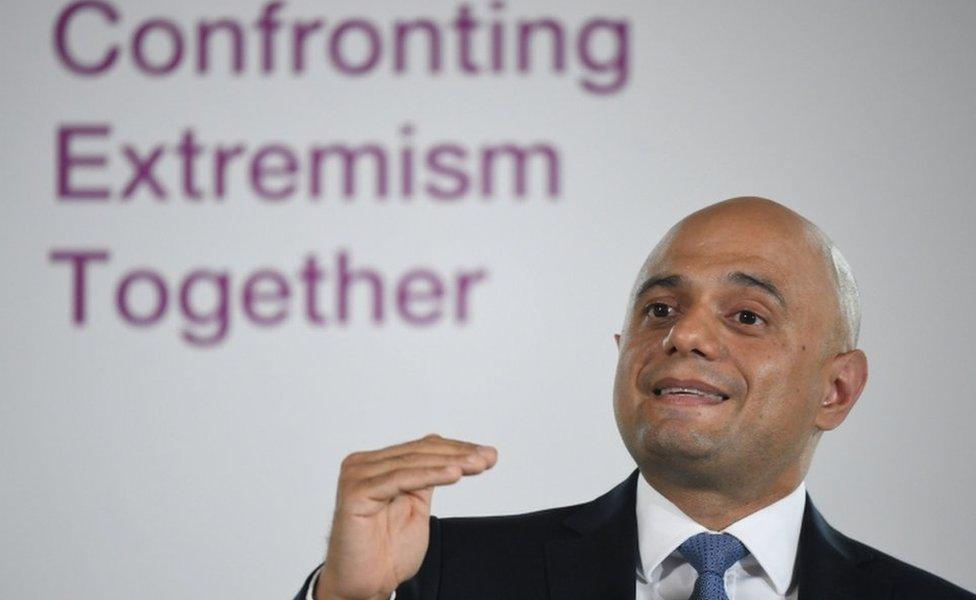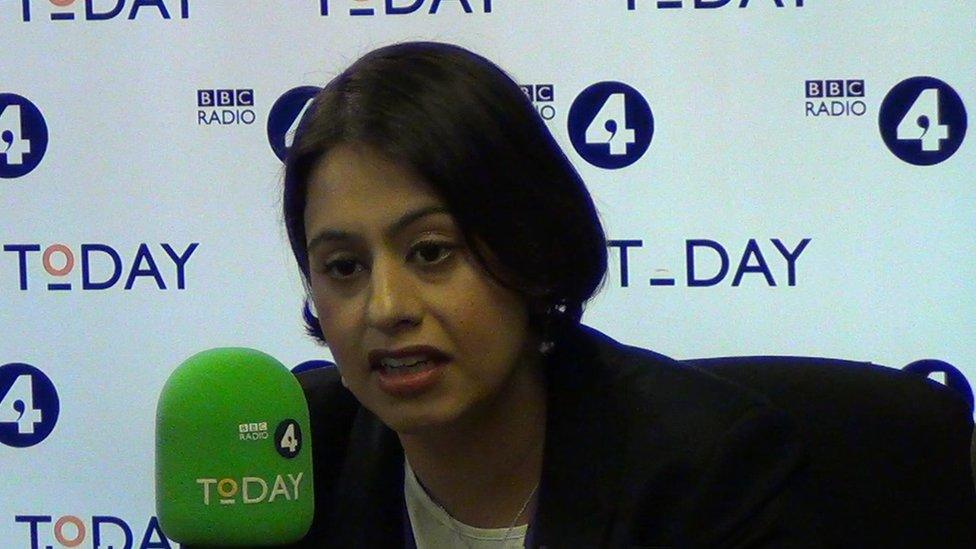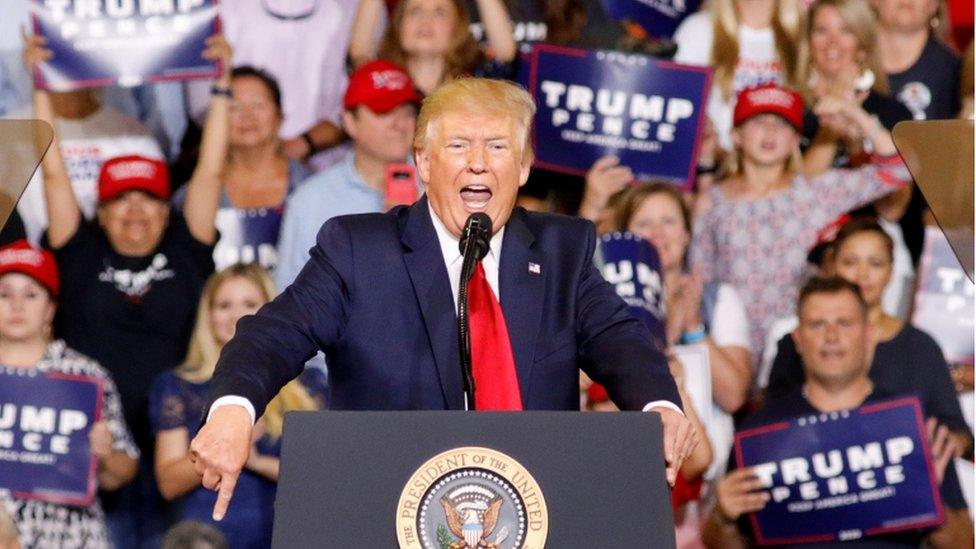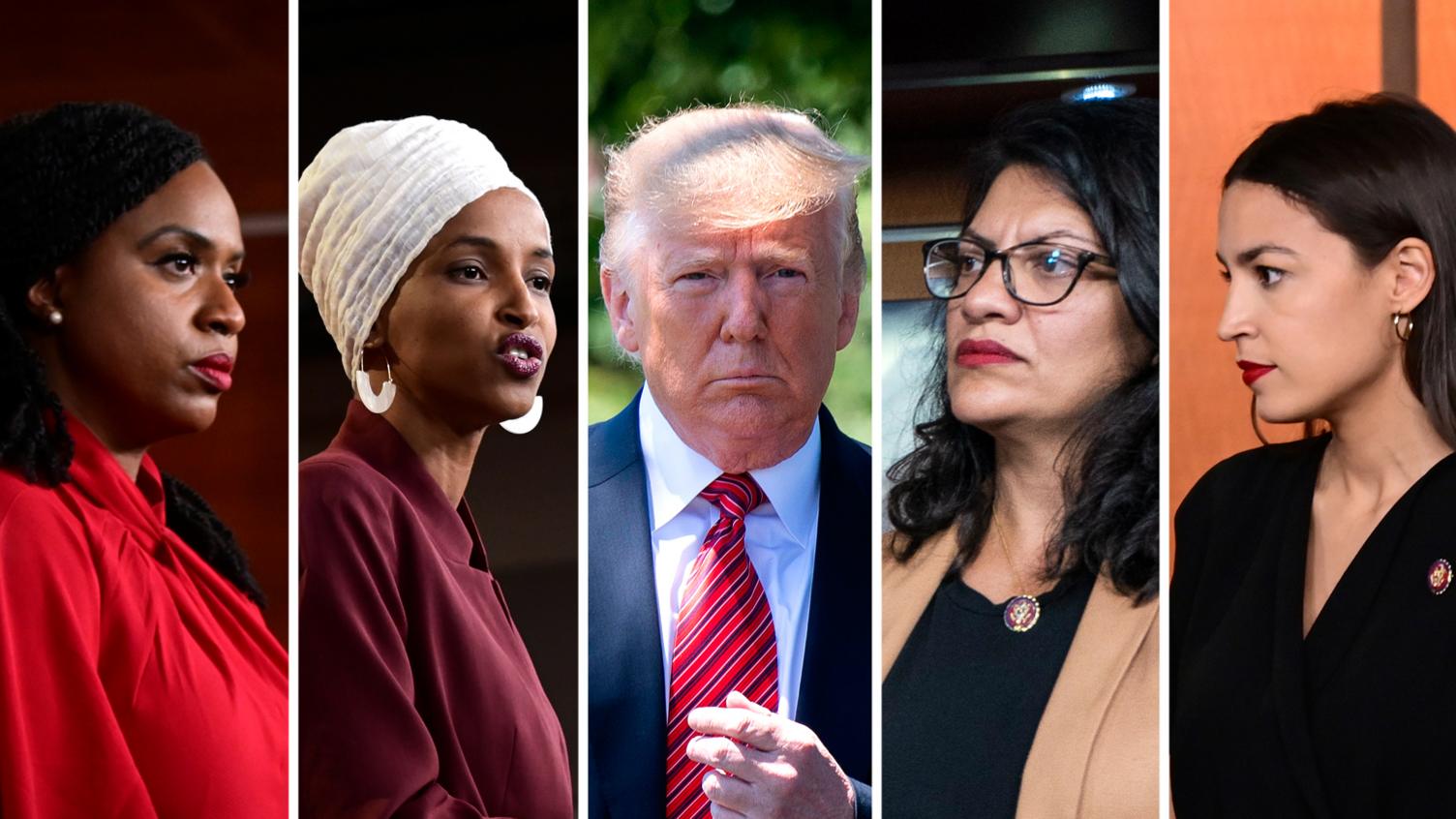Sajid Javid warns of 'naked populism' in US
- Published

Sajid Javid: "I know what it's like to be told to go back to where I came from..."
Home Secretary Sajid Javid has condemned "naked populism" in the US and described chants made at a Donald Trump rally as "completely unacceptable".
Mr Trump disavowed chants of "send her back" aimed at Democratic congresswoman and US citizen Ilhan Omar.
Mr Javid said he was "deeply concerned" about polarisation in parts of the US.
In a speech, he also warned of racism propelling extremist politicians to power around the world.
Speaking about the chants, Mr Javid said: "This is going on in the US today. Imagine if people were saying to me "send him back".
"I know how I'd feel but I'd like to think most of society would think that's just completely unacceptable in a modern liberal democracy, to have that kind of situation and not be appalled by it."
Public figures must also "moderate their language" as part of a greater effort to tackle extremism, he said, adding that everyone had a "part to play" in stopping the spread of poisonous ideologies.
His words follow the publication of a poll suggesting 52% of respondents had witnessed extremism.
He said: "I know what it's like to be told to go back to where I came from, and I don't think they mean Rochdale."
The home secretary's comments come after US President Donald Trump was accused of racism and xenophobia for telling four Democratic Party congresswomen to "go back" to the countries they "originally came from".
Mr Javid noted extremists use immigration "as a proxy for race" and exaggerate migrant figures to stoke fear.
"Anyone can challenge the myths," he added. "So tell your friends, shout it loud and proud: people from minority backgrounds did not steal our jobs, they're not terrorists, that there is no global 'Zionist conspiracy'."
"We must confront the myths about immigration that extremists use to drive divisions," Mr Javid, the son of immigrants from Pakistan, told civil society groups, charities and academics in a speech entitled Confronting Extremism Together.
He called for further integration within society, more help for people to learn English, greater support for communities and a celebration of national identity.
Mr Javid said the extremism problem has spread from radicalisation by organisations like the Islamic State group to the far left and right of politics.
"Public discourse is hardening and becoming less constructive," he said.
"Everyone has a part to play - broadcasters who must not give a platform to extremists; police who must swoop on the worst offenders; public figures who must moderate their language."
Labour MP Jess Phillips, who has herself been a target of online abuse, said too many political leaders are using the "very extreme end of language".
She told BBC Radio 4's World At One: "Whether that's the president of the United States or politicians in our own country, there needs to be a reckoning about the kind of language that we are using and what effect that is having on the ground."
Mr Javid's speech follows the publication of a poll by the Commission for Countering Extremism, external - an independent body set up after the Manchester Arena terror attack.
Of almost 3,000 respondents to the survey, more than half said they had witnessed extremism. Of these, 45% said they had seen it online while 39% said they had seen it in their local area.
Lead commissioner Sara Khan, who introduced Mr Javid's speech, said the findings "underline the breadth and severity of the concerns we have in 2019".

Sara Khan told the Today programme extremism exists in different forms
Speaking on BBC Radio 4's Today programme, she said a "range of drivers" contribute to extremism and extremist ideology.
She said the forms of extremism varied from far-right extremism to less talked about types such as animal rights activism.
"Extremism harms everybody in our country. It requires a whole society response," she added.
The survey forms part of a review of the threat and response to extremism in England and Wales.
- Published18 July 2019

- Published17 July 2019
